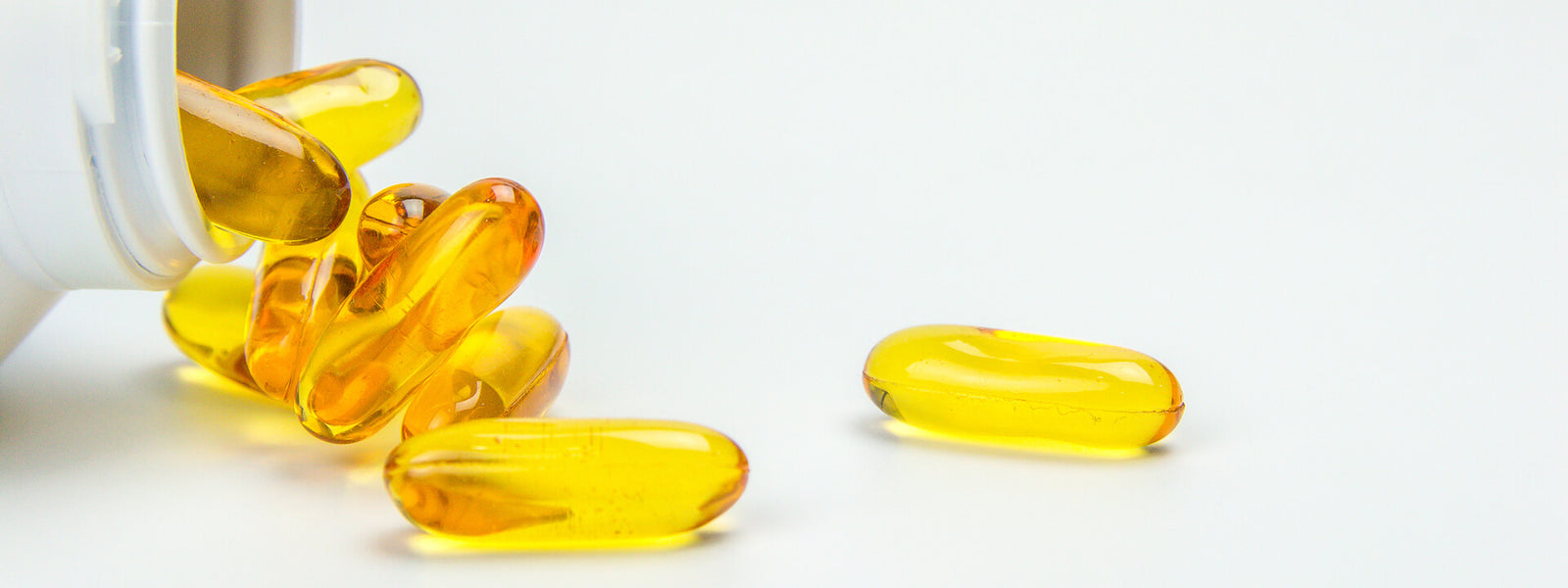Where does the name “omega 3” come from? Omega and 3 refer to the location of the first double bond between carbons in a long chain of carbon-to-carbon bonds.
There are two “essential fatty acids.” They are termed essential because your body cannot make them from other substances; in other words, you must consume them or you will suffer a deficiency*. In this way they are like vitamins. The two essential fatty acids are one omega 3, alpha-linolenic acid (ALA), and one omega 6, linoleic acid (LA).
Alpha-linolenic acid
Linoleic acid
There are many kinds of omega 3 fatty acids, the two most commonly known are eicosapentaenoic acid or EPA and docosahexaenoic acid or DHA, both are found primarily in cold-water fish. Another omega 3 is ALA. It is found primarily in a few seeds like flaxseeds, hemp, some nuts and a few grains.
EPA
DHA
There are many omega 6 fatty acids as well, including linoleic acid (LA) found in many vegetable oils, gamma linolenic acid (GLA) most commonly found in Evening Primrose Oil, dihomo-gamma-linolenic acid (DGLA) trace amounts are found in meat, and arachidonic acid (AA) which is found in all meats. Each of the substances listed above have specific functions in the body, some good, some not so good. I’ll cover their functions in the body in later articles in this series.
It’s important to know that each of the omega 3 fatty acids can be converted into other omega 3s and the same is true with the omega 6 fatty acids (omega 6 fatty acids can be converted into other omega 6s).
In other words, if you consume little or no fish (good source of EPA and DHA) yet eat alpha-linolenic acid (ALA) in the form of flax seed oil, your body can convert the ALA into EPA and DHA but not very readily. This point will be discussed in detail in future articles in this series.
GLA
DGLA
AA
Even though omega 3s can chemically change into other omega 3s they cannot do so very efficiently. For example, the short chain omega 3 fatty acid called alpha-linolenic acid can convert to both EPA and DHA but not efficiently enough to prevent deficiency conditions. In fact, no more than a couple percent of ALA is ever converted to either EPA or DHA.
This is one of the reasons why strict vegetarians who have not taken specific precaution may develop a deficiency of both EPA and DHA. Many experts in the field believe that strict vegetarians are likely to suffer both deficiencies and imbalances in omega 3 and omega 3 to 6 ratios unless they supplement their diet.
It’s important to note that any interference in the body with these conversions are likely to create “effects” that can lead to a wide range of health disorders. For example, Westerners frequently consume too much omega 6s and not nearly enough omega 3 fatty acids.
Consuming too much omega 6s leads to a greater tendency towards inflammation in the body. Many experts now agree that excessive inflammation is perhaps the root cause of many of the chronic diseases we suffer from.
*Deficiency in this context implies that there is a specific disease that results from not getting this nutrient in your diet.
In Part II of this series, I present an overview of how our eating patterns have changed rather dramatically relative to omega 3 and 6 fatty acids over the past 100 or so years and what impact that has on our health.


 Supplements
Supplements Skincare
Skincare Superfoods
Superfoods Bundles
Bundles














There are many hundreds of brands of Omega 3 as you likely know. The things to look out for are as follows:
Ensure it has a high DHA mg per soft gel
Ensure that the DHA is higher than the EPA value
Ensure it comes from a pure fish source, not a cheap mixed source (usually sardines, cod, anchovies, mackerel, salmon, etc all of which have low natural DHA, and are prone to higher contamination)
Make sure you can view a certificate of analysis (COA) to check on its purity
Make sure you can read information about its processing, and make sure that some antioxidant is included.
If it is pure, it shouldn’t need things like flavours or enteric coating added, these are just marketing ploys.
Essentially, use our Omega 3/DHA product info pages, and downloadable Buyer’s Guide as references to what you should be looking for. These tell you everything that you need to know, which is why our Omega 3/DHA is considered one of the most unique, pure and high potency formulas worldwide.
Joanna
Xtend-Life Expert September 10 2010